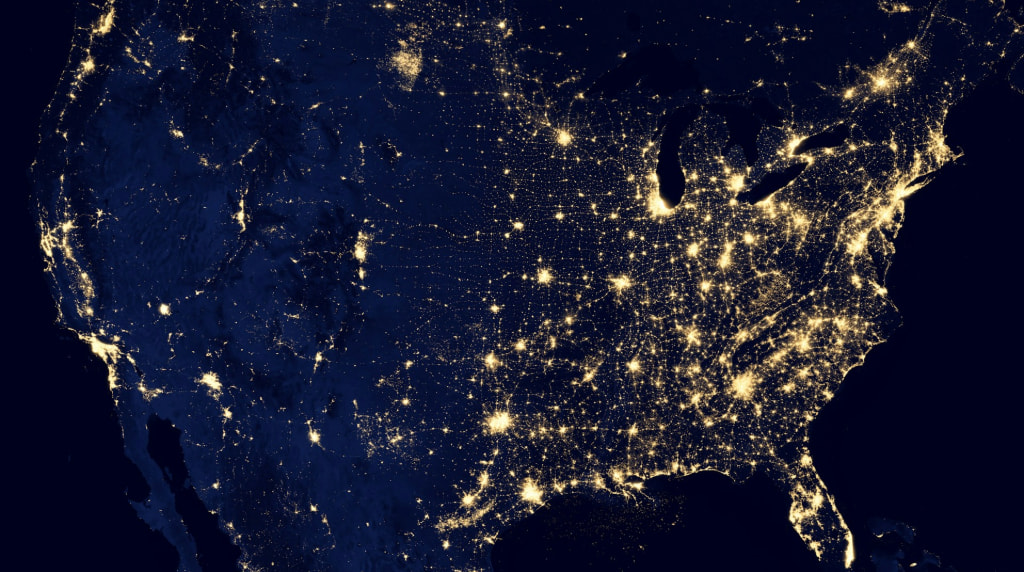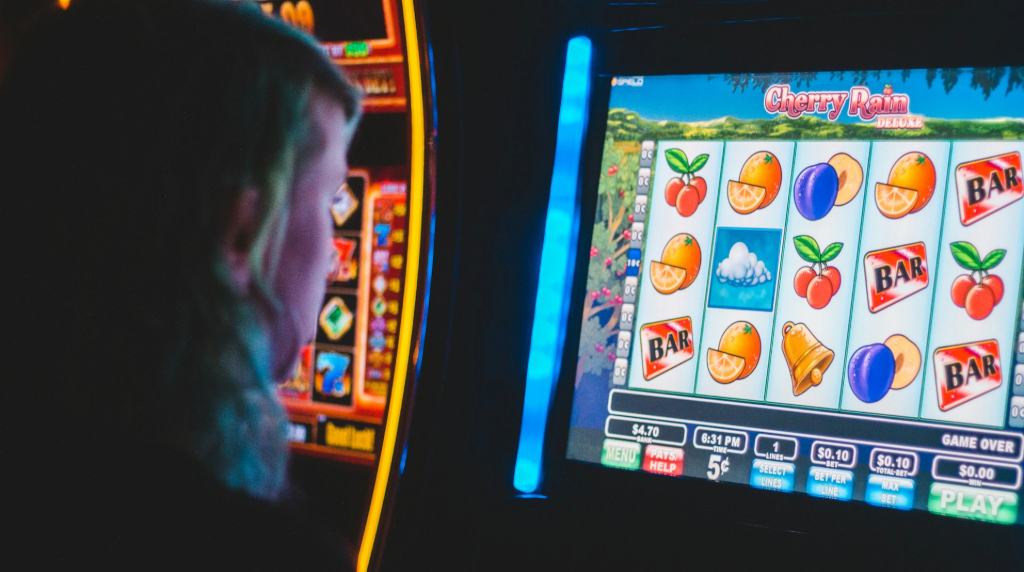Understanding Online Casino Rules and Regulations in the US
Hey, we get it; you could spend an hour googling whether online casinos are legal where you live and be more confused than when you started! There are many different views on what legal means regarding online gambling rules and regulations, but we got you.
Understanding Online Gambling Regulations in the US
Much of the issues in the United States concern federal vs. state law and, in some cases, tribal law. We will first cover that before launching into the even more nuanced question about the legality of sweepstakes and offshore casinos. The key takeaway here is that these laws are quickly evolving. What is legal today may not be legal tomorrow, and conversely, what we lay out as an absolute no-no here may be totally okay a year down the road.
Federal Law
It’s fair to say that most people think that Federal law flat-out makes gambling illegal, but that’s not entirely true. They regulate how and where it can take place and are mostly concerned when it occurs across state lines or involves Federal financial institutions. As usual with the Government, there is a whole patchwork of alphabet soup-sounding laws that are patchworked together to form federal laws on online betting.
The first is the 1961 Wire Act. While the Feds insisted for many decades that the law passed long before the birth of the Internet prohibited any form of online gambling, the Government finally relented on that position in 2011, deciding the law’s intent had been confined to sports betting. In 2018, the DOJ Office of Legal Counsel attempted to change that again but failed.
The Unlawful Internet Gaming Enforcement Act or UIGEA is another very misunderstood law. It only makes it illegal for payment processors like your bank or credit card company to allow you to transact unlawful online gambling transactions knowingly. Your individual state laws determine what is prohibited, and regardless, this law is aimed at financial institutions, not individuals.
And last but not least, there was a law until 2018 called PASPA. The Professional and Amateur Sports Protection Act was a well-meaning piece of legislation that broadly overstepped the Government’s reach into acts it considered harmful but over which it was not granted authority explicitly in the Constitution.
The Supreme Court agreed in 2018, repealing the federal law on Tenth Amendment grounds and releasing the power back to the states on whether sports betting online or in brick-and-mortar locations would be legal as long as it didn’t cross state lines.
So there we have it: most federal statutes currently on the books lay out financial institutions’ legal obligations and allow states broad leeway to draw up their own laws on gambling as long as it doesn’t enter into interstate commerce.
States Rights
For reasons far beyond the scope of this article, the two new forms of gambling, sports betting and online casino gaming, had two very different outcomes. While sports betting is now legal in over 36 states, the vast majority of which also allow you to bet sports online, online casinos are relegated to barely more than a handful of States, mainly in the Northeast.
However, if you are in Connecticut, Rhode Island, Delaware, New Jersey, West Virginia, Michigan, or Pennsylvania, you are in luck. These seven states allow online casino gaming, whether that means slots, blackjack, or even playing roulette with a dealer on a live game in a studio somewhere.
If you live there or are even within the state lines as you pass through, you have a casino in your pocket 24/7, as once you download the app on the Apple or Google Play Store, you can bet to your heart’s content.
It seems a forgone conclusion that other states will join them eventually, as larger states like Pennsylvania not only had casino operators bring in almost $6 billion in revenue, but the State also added $2.45 billion in tax revenue. Yes, those numbers are with a B. Not many states can long pass up a couple extra billion to shore up pet projects and offset income taxes.
Each State has slightly or, in some cases, vastly different online gambling regulations. For instance, New Jersey has awarded almost 40 casino licenses, while Rhode Island has kept its online casino business a monopoly.
The state tax rate in Pennsylvania on online slots is 54%, while in West Virginia, it is only 15%. All legal online casinos have kept their age limits at 21, but Rhode Island allows 18-year-olds to gamble in person.
The Other 86%
That still leaves 43 states which don’t have legal online casinos. But that certainly doesn’t mean you don’t have options if you wish to play. Sweepstakes casinos have been around for over 10 years and often now have the same advertising budget as many of their more conventional counterparts. Offshore casinos are unregulated and definitely a buyer-beware proposition, but in most states, no laws prohibit betting on these sites.
New Kid on the Block
While sweepstakes casinos have recently been in the news as many state legislatures work on various fixes to online casino rules and regulations that would make them illegal, the takeaway would seem to be that in most states where you can sign up to play these games, they are still considered legal.
Up until very recently, that was just about every state except for Washington and Idaho, with Montana and Michigan having some exceptions. However, as we mentioned, state legislatures and Attorney Generals around the country are looking to rewrite online casino regulation to include these unlicensed and untaxed operators, so it is a very fluid situation.
A sweepstakes casino uses laws that allow companies like McDonald’s or Starbucks to give away prizes in your State when you make a purchase. In this case, they offer casino games like slots and blackjack, which you can play for gold coins. When you purchase these gold coins to play these games, you receive sweep coins.
Sweeps coins can be traded in for cash or prizes once you hit a certain minimum cash out. But they can also be played in casino games, and you can win or lose much as you might real money at a casino if you choose.
Our best advice is that if you can sign up for a sweeps operator in your state, pick one of the top sweepstakes casinos with hundreds of 5-star Google reviews and high scores on a site like Trust Pilot. And while there has been a lot of talk about legality, we are only aware that one state has brought actual criminal charges against a sweeps operator.
There have been no known cases of individuals being prosecuted simply for playing at a sweepstakes casino. However, always consult your local laws or a legal expert if you’re unsure, still it would be like trying to charge you for entering Publisher’s Clearing House.
Of course, with that being said, laws will be changing, so always try to stay up to date with your state’s online gambling regulations. Another issue is that in some states recently, like New York, where several sweeps operators decided to pull up shop after discussions with the Attorney General, little or, in one case, no notice was given before these online sweeps casino sites shut down. This meant even players who had reached the minimum cash-out amount didn’t have time to pull their deposits.
This again reinforces the concept that, much like in the real world, you need to play with trusted names and more prominent brands that you can trust. These brands should not only give you fair and honest games with a chance to win but also be unlikely to take the public relations hit of just folding overnight and disappearing with your hard-earned cash.
Beyond the Pale
The American Gaming Association estimates that US citizens spend more than $337 billion on unregulated online casinos annually and another $60 billion on unlicensed sports bets. Yes, with a B again. They estimate that roughly half of all sports bettors make at least one bet with an unregulated operator each year. So, that gives you some sense of the size of the offshore gaming market.
Federal online gambling regulations would be required to bring any sense of law and order to the offshore space. While many operators are probably breaking the law by taking bets in some state jurisdictions, it’s much less clear that individual bettors are breaking the law by placing a wager. Be sure to report all winnings regardless of where you win them.
Again, online casino regulation varies state by state, so do check, but again, your biggest risk is probably not having any legal recourse to recover your funds if something goes wrong and zero consumer protection.
Conclusion
Online gambling regulations in the US remain a hodgepodge of state and federal law. While most of these laws are aimed at the people taking the bets, knowing what is allowed in your state is still essential.
This has become increasingly difficult not just due to the many grey market casinos, either sweeps casinos or those that operate offshore, but also because dozens of states are looking to change their current gambling laws to tighten their ability to restrict unlicensed and untaxed operators that siphon off needed tax revenue.
Now more than ever, it is important to be informed. If this matter is important to you, contact your elected state representatives and let them know where you stand on any proposed gambling law changes.


 Reel Love: 5 Slot Games to Match Every Valentine’s Mood
Reel Love: 5 Slot Games to Match Every Valentine’s Mood
 Best Christmas Slots for 2025
Best Christmas Slots for 2025
 7 Politically Incorrect Slots for the Connoisseur Who’s Seen It All
7 Politically Incorrect Slots for the Connoisseur Who’s Seen It All
 Casino Payment Delay Red Flags: When Waiting Is a Concern
Casino Payment Delay Red Flags: When Waiting Is a Concern